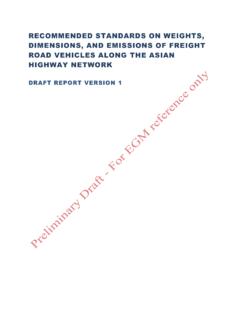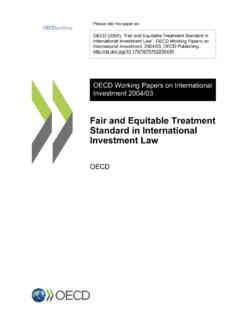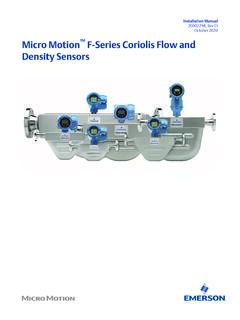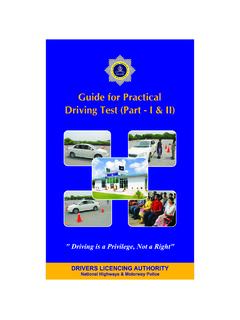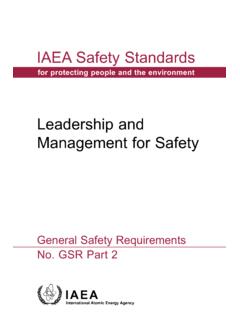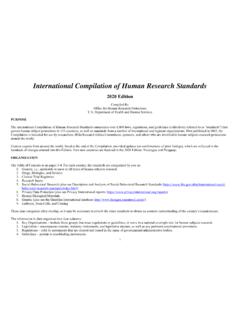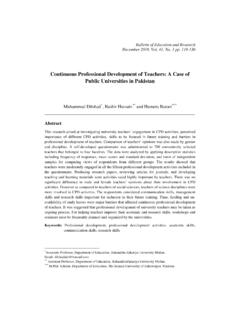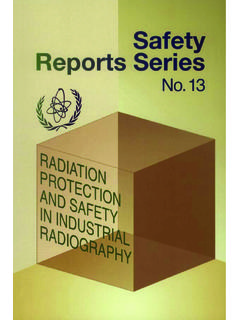Transcription of National Qualifications Framework of Pakistan 2015
1 National QualificationsFramework of Pakistan 2015 Use Reason & LogicUse Reason & LogicSeek KnowledgeSeek KnowledgeAct RighteouslyAct RighteouslyReflect and ExploreReflect and ExploreNational Qualifications Framework of Pakistan 2015 Table of ContentsTable of ContentsTable of ContentsTable of ContentsIntroductionNational Qualifications Framework of Higher Education Objectives of the National Qualifications Framework TerminologyLevels and Programme TitlesKey Student Learning Outcomes of Level 5 Key Student Learning Outcomes of Level 6 Key Student Learning Outcomes of Level 7 Key Student Learning Outcomes of Level 8 NQF Qualification Titles Criteria for the Use of Titles/Nomenclature for the Degree Names and Abbreviation of Degrees being used by HEIs/DAIs Nomenclature and Abbreviations of Qualifications offered in PakistanDegree Issuance PolicyDescription of Higher Education Qualifications Associate Degree 2-year Bachelor (Pass) Degree 3-yearBachelor (Honours)Degree Professional Bachelor Degree (4-5 years Professional degree) Bachelor Degree (4 years Bachelor Degree) Masters Degree (1-2 years ) Masters Degree Doctoral (PhD) Degree2334689101112121213141515161819192 02122232 National Qualifications Framework of Pakistan 2015 Introduction: The Bologna Process (1999-2010) developed and implemented an overarching structure to serve as a catalyst for Higher Educational Reforms in Europe.
2 The process since has been adopted by almost 100 countries in the world to reform their systems of higher education based on commonly agreed standards. Many countries have developed National Qualifications Frameworks to cover the full spectrum of education including Basic Education, Secondary Education, Technical and Vocational Education and Tertiary Education including the under graduate and graduate levels of higher Education Commission (HEC) of Pakistan started developing a Qualifications Framework for Higher Education in 2009 and took the necessary steps to develop the tools for implementing the Framework on a nationwide basis covering all the HEC chartered public and private institutions of higher education in the country. The tools included development and implementation of semester system, National Curriculum Review Committees consisting of Disciplines experts for curriculum development and refinement to ensure its rigour and relevance, assessment and grading policies, policies related to admission, retention, graduation of students from undergraduate and graduate programmes and a comprehensive list of chartered universities and graduate degree colleges.
3 These were included in the Register of National Qualifications Framework . These twin documents have been widely shared with all stakeholders in printed form as well as on HEC website. National Qualifications Framework provides clearly defined levels of Knowledge, Skills and Competencies to be acquired by each graduate that are easy to comprehend by students, employers and human resource development policy makers. Bologna initiative resulted in major reforms of higher education in many countries and more countries are voluntarily using the process to promote inter and intra-country mobility of students and credit hours, promotion of collaborative research and relatively uniform standards and learning outcomes. In 2014, over 100 countries have developed their National Qualifications Frameworks for Higher Education.
4 The main objectives of the 1999 Bologna Declaration included,1. "Adoption of a system of easily readable and comparable degrees2. Adoption of a system of two main cycles (Undergraduate/Graduate)3. Establish a system of credits transfer (ECTS)4. Promote mobility by overcoming legal recognition and administrative obstacles5. Promote cooperation in quality assurance."Subsequently the 2010 Prague Declaration of the European Ministers of Education added the goal of mutual recognition of undergraduate and graduate degrees offered by recognized universities. It also called for promoting quality of instruction at all levels of higher education, and developing and implementing a system of comparing Qualifications among various Education Commission of Pakistan has used the Bologna Principles to bring about qualitative reforms in higher education and is consistently striving to implement the National Qualifications Framework .
5 This new revised version of the Framework is designed to further sustain the qualitative improvement of programmes of higher education Qualifications offered in the country. While moving towards universally recognized undergraduate degree programmes of eight semesters, 124-140 credit hours, and the revised Framework has incorporated four semesters, 68 credit hours associate degree programmes those open the doors to initial level employment and further study to complete the 4 year degree programme. The revised Framework has outlined the admission, retention and graduation requirements for graduate programmes including significant applied and abstract research component connecting universities to become engines of social, economic and human resource development to create a world class critical mass of specialists in natural, social and applied sciences, and professions to create an economically progressive and tolerant following pages describe the National Qualifications Framework for Higher Education in Pakistan and policies related to its implementation.
6 The NQF is augmented by a register that lists all the chartered Higher Education degree awarding institutions and programmes offered by them. The register has included in it detailed HEC approved policy on implementing semester-based assessment of learning outcomes and grading to ensure uniform standards of quality of Qualifications offered by all chartered universities and post-graduate degree colleges. Facilitate the trans- National mobility of graduates and learners Be used as an instrument for qualitative reforms in education system Help promote the linkages between industry and education systemTerminologya. Credit is a uniformly recognized measure of time and effort expended to acquire information, skills, competencies and recognition that a learner has successfully completed prior course of learning, corresponding to the qualification at given level,b.
7 Competence means the demonstrated ability to acquire and use knowledge, skills, competencies and personal, social and/or methodological abilities, in work or study situations and in professional and personal development. In the context of the European Qualifications Framework , competence is described in terms of responsibility and autonomy at the level of the qualification, c. Field-Specific Competence means ability to use discipline-specific information, processes and tools of knowledge and practice,d. Knowledge means the outcome of the acquisition, assimilation, comprehension and application of information through learning activities. Knowledge is the body of concepts, facts, principles, theories and practices that is related to a field of work or study. Knowledge is described as theoretical, factual and practical,e.
8 Learner refers to an individual undergoing skill development training, whether in a formal or informal setting, f. Learning Outcomes means what a learner knows, understands and is able to do on completion of a learning process, which are defined in terms of knowledge, skills and competence, g. National Qualifications Framework means a National instrument for the classification of Qualifications according to a set of criteria for specified levels of learning achieved. It aims to integrate and coordinate National Qualifications subsystems and improves the transparency, access, progression and quality of Qualifications in relation to the labour market and civil society,h. Recognition of Prior Learning is the process of recognizing previous learning, often experiential, towards gaining a qualification,i.
9 Skills mean the ability to apply knowledge and use know-how to complete tasks and solve problems critically, creatively and constructively,j. 'Trainer means someone who trains, instructs, teaches, or otherwise enables the learner (s) to acquire the appropriate knowledge and skills,k. "Training provider , Institute and Institution refers to any accredited organization providing knowledge and skills to learner, Activity Sheet for Curriculum Framework Elements A curriculum Framework is an organized plan or set of standards or learning outcomes that defines the content to be learned in terms of clear, definable standards of what the student should know and be able to do at the time of graduation. A curriculum Framework is part of an outcome-based education or standards based education reform design.
10 It is a document (or set of documents) that sets standards for curriculum and provides the context (available resources, capabilities of teachers and system support) in which subject specialists develop syllabi A curriculum Framework describes the educational environment in which syllabi (or subject specific outlines of objectives, outcomes, content and appropriate assessment and teaching methodologies) can be developed. Each individual system/discipline of knowledge can maintain the identity of its own curriculum while ensuring consistency and quality through compliance with a set of agreed standards expressed in the Framework A curriculum Framework commonly contains the elements described in the Table below. However, one of the advantages of a Framework approach is flexibility and elements can be added to or deleted from the Framework structure to suit the needs of the education system or systems developing Qualifications Framework of Higher Education in Pakistan : the higher education system of Pakistan is heir to a diverse set of sources and traditions.










